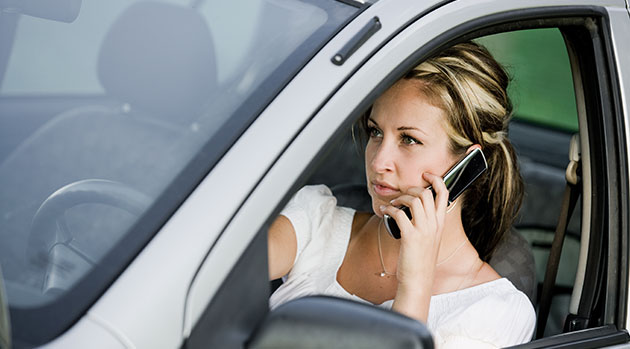Spring has just sprung, but the thermometer in Georgia’s gold-domed capitol is already reading scorching summer temperatures with a heated debate underway over cell phone use while driving.
On one side is State Representative John Carson (R-Marietta), who’s chairman of the House Study Committee on Districted Driving, a Georgia House of Representatives committee tasked with monitoring and identifying problems related to distracted driving in the Peach State.
Carson sponsors House Bill 673, which would bar Georgia drivers from using handheld devices while driving, and stiffen penalties for those found breaking this law or the state’s already-existing ban on texting while driving. The bill recently passed through the state’s House of Representatives and is under consideration in the Senate.
“This one we have to get right, this impacts 5 million drivers,” Carson said. “This is the DUI law of our generation.”
On the other side is State Representative Ed Setzler (R-Acworth). Setzler and like-minded legislators argue that the law represents government overreach.
It’s “extraordinarily productive” to make calls with a handheld device while driving, Setzler said. “I’m on my phone the entire time I’m on I-75.”
Both lawmakers suggest they have the data to support their case.
On Carson’s more restrictive side are crash and fatality statistics. In 2017 alone, 1,550 people died on Georgia roads, and from 2014 to 2016, Peach State traffic accidents rose 36%, Carson wrote in a Facebook post defending his bill. In the same post, he outlined recent findings from the House Study Committee on Districted Driving, which found that of the 15 states with similar hands-free laws on the books, 13 enjoyed a 16% decrease in fatal accidents within two years. In Georgia, that would amount to 250 lives saved annually.
“The size of a high school class,” Carson notes.
Setzler, for his part, told the Atlanta Journal-Constitution that he was speaking for millions of drivers in his opposition to the bill, and equated the danger of talking on a hands-free device to that of speaking on a handheld phone. And according to an England-based study, he could be right.
“A popular misconception is that using a mobile phone while driving is safe as long as the driver uses a hands-free phone,” said Graham Hole, a researcher at the University of Sussex in England, which studied the two modes of mobile communication and its impact on driving. “Our research shows this is not the case. Hands-free can be equally distracting because conversations cause the driver to visually imagine what they’re talking about. This visual imagery competes for processing resources with what the driver sees in front of them on the road.”
It remains to be seen if the two sides can marshal enough data and sympathy with their upper-chamber colleagues to pass or defeat the bill in the Senate.
